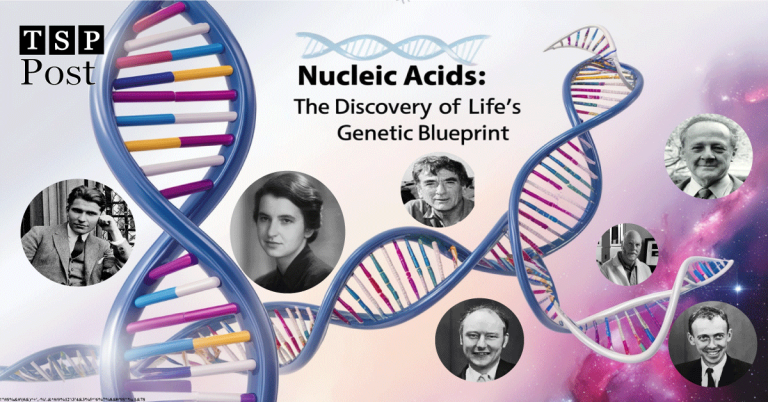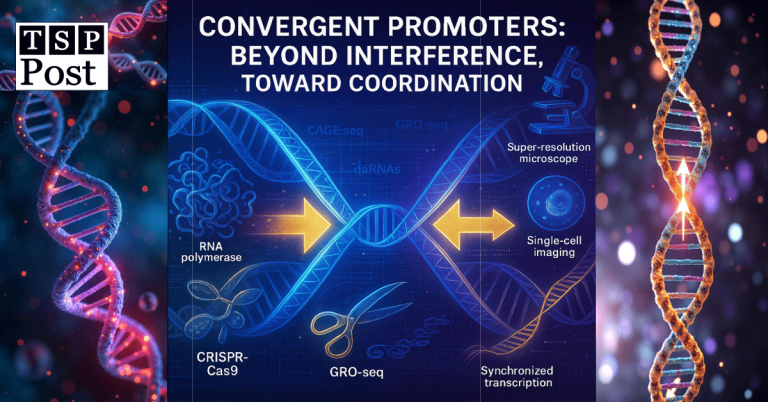Pi Network in Biotechnology: Revolutionizing Biotech with Blockchain Technology
Introduction: The Convergence of Two Revolutionary Technologies
Pi Network in Biotechnology is transforming the industry by harnessing blockchain’s power to ensure secure, transparent, and efficient data management in medical research and development. The marriage of blockchain technology and biotechnology represents one of the most promising frontiers in modern innovation. While blockchain brings unprecedented security, transparency, and decentralization to digital systems, biotechnology continues to revolutionize healthcare, agriculture, and environmental sustainability through cutting-edge biological solutions. Pi Network, with its unique mobile-first approach and rapidly growing community of over 47 million engaged users, stands poised to become a transformative force at this intersection.
Unlike traditional blockchain projects that require expensive hardware and consume massive amounts of energy, Pi Network’s eco-friendly mining model makes it particularly well-suited for integration with biotechnology applications. This article will explore in depth how Pi Network’s blockchain infrastructure can address critical challenges in biotech, from securing sensitive health data to revolutionizing pharmaceutical supply chains and democratizing research funding. Therefore, The aim of this post is to explore how Pi Network in Biotechnology can revolutionize research collaboration, funding, and innovation through decentralized solutions.
The Current Landscape of Biotechnology Challenges
Before examining Pi Network’s potential solutions, it’s crucial to understand the persistent pain points in biotechnology that blockchain technology can address (table 1):
- Data Privacy and Security Concerns: The biotech industry handles some of the most sensitive data imaginable – genetic information, medical records, and proprietary research. Current centralized storage systems present significant vulnerabilities, with healthcare data breaches costing the industry an average of $10.1 million per incident in 2023. Patients and research participants have little control over how their biological data is used or shared.
- Clinical Trial Transparency Issues: The pharmaceutical industry faces a crisis of trust, with studies showing that nearly 30% of clinical trials go unreported, and positive results are twice as likely to be published as negative ones. This publication bias distorts medical knowledge and can delay critical treatments.
- Supply Chain Vulnerabilities: The global pharmaceutical supply chain suffers from counterfeit drugs entering legitimate distribution channels, with the WHO estimating that 1 in 10 medical products in low- and middle-income countries is substandard or falsified. Current tracking systems lack end-to-end visibility.
- Research Funding Bottlenecks: Groundbreaking biotech research often stalls due to funding limitations, with traditional grant systems favoring established institutions over innovative independent researchers. The average cost to develop a new prescription drug that gains market approval is estimated at $2.6 billion.
- Intellectual Property Challenges: Small biotech firms and independent researchers struggle to protect and monetise their discoveries, with patent processes often being prohibitively expensive and time-consuming.
Key Biotech Challenges and Blockchain-Based Pi Network Solutions
| Table 1: Key Biotech Challenges and Blockchain-Based Pi Network Solutions | ||
| Biotech Challenge | Problem Details | Pi Network-Based Solution |
| Data Privacy & Security | Centralized systems risk breaches and unauthorized access to genetic/medical data. | Decentralized, encrypted health data stored securely with patient-controlled access. |
| Clinical Trial Transparency | Non-reporting of negative results and retrospective protocol changes. | Immutable records and smart contracts ensure transparency and auditability. |
| Counterfeit Medications | 1 in 10 drugs in LMICs is fake, risking patient safety. | Blockchain-based supply chain tracking ensures provenance and alerts for fakes. |
| Research Funding Bottlenecks | Bias in grants toward elite institutions. | Decentralized funding with Pi token micro-grants and milestone-based disbursement. |
| Intellectual Property Limitations | High cost and complexity of patents. | Transparent record-keeping and smart licensing via blockchain. |
Pi Network’s Unique Value Proposition for Biotech
Pi Network brings several distinctive advantages that make it particularly suitable for biotech applications (table 2):
- Mobile-First Accessibility: Unlike most blockchain platforms that require technical expertise to interact with, Pi Network’s smartphone-based approach makes it accessible to healthcare professionals, researchers, and patients alike. This is crucial for widespread adoption in the medical field.
- Energy-Efficient Infrastructure: The environmental impact of traditional blockchain networks has been a significant barrier to their adoption in sustainability-conscious fields like biotech. Pi Network’s low-energy consensus mechanism aligns with the green ethos of many biotech initiatives.
- Growing Ecosystem of Developers: With its large and engaged community, Pi Network has attracted developers who are building real-world applications. This growing ecosystem increases the likelihood of successful biotech integrations.
- Upcoming Open Mainnet Capabilities: The transition to an open mainnet will enable more sophisticated smart contract functionality and interoperability with existing biotech systems, paving the way for enterprise-level applications.
| Table 2: Pi Network Features Supporting Biotech Integration | |
| Pi Network Feature | Biotech Application Relevance |
| Mobile-First Accessibility | Enables patients, doctors, and researchers to interact easily with health apps and research tools. |
| Energy-Efficient Protocol | Suitable for sustainable biotech initiatives with minimal environmental footprint. |
| Smart Contracts (Mainnet Ready) | Automates trial participation, informed consent, funding release, and access rights. |
| Developer Ecosystem | Encourages biotech-specific app development on Pi’s infrastructure. |
| Secure Tokenization | Incentivizes participation in trials, funding, and genomic data sharing. |
Detailed Applications of Pi Network in Biotechnology
Revolutionizing Health Data Management
The current system of health data storage is fundamentally broken. Patients’ medical records are scattered across different providers, genomic data is siloed in testing companies, and individuals have little say in how their information is used. Pi Network can enable a paradigm shift through: (table 3)
Patient-Centered Data Ownership
Imagine a Pi-powered health data platform where individuals maintain complete control over their medical information. Through a user-friendly mobile interface, patients could:
- Store encrypted health records from multiple providers
- Grant time-limited access to specific doctors or researchers
- Track exactly who has accessed their data and for what purpose
- Receive Pi tokens as compensation for participating in research studies
Secure Genomic Data Sharing
Genetic testing companies currently monetize users’ DNA data without providing adequate compensation or transparency. A Pi-based solution could:
- Allow individuals to upload their genomic data to a secure blockchain storage
- Enable selective sharing with researchers through smart contracts
- Automate micropayments in Pi tokens for data usage
- Maintain privacy through advanced cryptographic techniques like zero-knowledge proofs
Real-World Implementation Example
A consortium of research hospitals could develop a Pi-based platform for rare disease research. Patients with rare conditions could opt to share their de-identified medical history and genomic data with approved researchers worldwide. Each data access would be recorded on the blockchain, with automatic Pi token payments flowing to participants. This would create a virtuous cycle where patients are fairly compensated while accelerating medical breakthroughs.
Transforming Clinical Trials
The clinical trial process is riddled with inefficiencies and trust issues. Pi Network’s blockchain can introduce much-needed transparency and automation:
Immutable Trial Records
Every aspect of a clinical trial – from protocol design to patient recruitment, data collection, and results reporting – could be timestamped and recorded on Pi Network’s blockchain. This would:
- Prevent retrospective changes to study parameters
- Create an auditable trail for regulatory review
- Reduce opportunities for data manipulation
Smart Contract-Powered Participation
Potential trial participants could browse available studies through a Pi-based platform that:
- Uses smart contracts to handle informed consent
- Automates eligibility verification while preserving privacy
- Tracks medication adherence through IoT devices
- Distributes compensation in Pi tokens for completed milestones
Publication Bias Solution
To combat the problem of unreported negative results, a Pi-based system could:
- Require pre-registration of trial designs
- Automatically release all collected data upon study completion
- Reward researchers with additional Pi tokens for full transparency
- Create a decentralized repository of all clinical trial outcomes
Case Study: Accelerating Cancer Research
A pharmaceutical company could conduct a Phase III cancer drug trial using Pi Network’s blockchain. Patient enrollment, dosing schedules, and outcome reporting would all be managed through smart contracts. The immutable nature of the blockchain would give regulators confidence in the data integrity, potentially shaving months off the approval timeline. Participants could earn Pi tokens for their involvement, creating stronger engagement and retention throughout the study period.
Securing Pharmaceutical Supply Chains
Counterfeit medications represent a growing global health crisis. Pi Network can provide an elegant solution:
End-to-End Drug Provenance Tracking
From manufacturing to patient delivery, every step of a medication’s journey can be recorded on the blockchain:
- Manufacturing Stage
- Each batch receives a unique digital identifier
- Production details (ingredients, equipment, personnel) are logged
- Quality control test results are immutably recorded
- Distribution Phase
- Shipment conditions (temperature, humidity) are continuously monitored
- GPS tracking verifies legitimate transportation routes
- Each handoff between parties is digitally signed
- Pharmacy Dispensing
- Consumers can scan a QR code to verify authenticity
- The complete history appears showing manufacturing date, shipping path, etc.
- Suspicious products can be immediately reported via the Pi app
Anti-Counterfeiting Economic Incentives
The system could incorporate Pi token rewards for:
- Pharmacists who properly verify incoming shipments
- Consumers who authenticate their medications
- Whistleblowers who identify counterfeit operations
Real-World Impact
In developing nations where counterfeit malaria and antibiotics are prevalent, a Pi-based verification system could save countless lives. Patients would gain confidence in their medications, while legitimate manufacturers could protect their brands. Regulatory agencies would gain unprecedented visibility into distribution networks
Democratizing Biotech Research Funding
Traditional research funding mechanisms are slow, bureaucratic, and often exclude innovative outsiders. Pi Network can disrupt this status quo through:
Decentralized Science (DeSci) Platforms
Pi Network’s infrastructure could support platforms where:
- Researchers post detailed proposals seeking funding
- The community evaluates and votes on projects using Pi tokens
- Smart contracts automatically release funds as milestones are achieved
- All research outputs are recorded on-chain for transparency
Micro-Grant Systems
Rather than relying on multi-million dollar grants, scientists could:
- Break projects into smaller, fundable components
- Receive micro-donations in Pi tokens from supporters worldwide
- Provide real-time progress updates to backers
- Share preliminary findings quickly without bureaucratic delays
Citizen Science Initiatives
Pi Network’s mobile accessibility enables:
- Crowdsourced data collection for ecological or epidemiological studies
- Distributed analysis of complex biological datasets
- Fair compensation for community contributions in Pi tokens
- Gamified elements to encourage participation
Success Story: Open-Source Drug Discovery
A team of researchers could use a Pi-based platform to crowdfund an investigation into neglected tropical diseases. By accepting small Pi token contributions from thousands of supporters worldwide, they could bypass traditional funding gatekeepers. Smart contracts would ensure transparent budgeting, while blockchain-recorded results would prevent data hoarding. If successful, the treatment could be licensed through the same platform, with proceeds distributed to backers.
| Table 3: Potential Real-World Pi Network Use Cases in Biotech | ||
| Use Case | Description | Impact |
| Rare Disease Genomic Data Exchange | Patients securely share encrypted DNA data with approved researchers. | Fair compensation, faster insights, privacy preservation. |
| Smart Clinical Trial Management | Use Pi-powered smart contracts for patient consent, data logging, and payments. | Higher participation, data integrity, reduced fraud. |
| Blockchain-Verified Drug Tracking | QR-enabled verification by pharmacists and patients. | Combats counterfeiting and builds consumer trust. |
| Community-Funded Drug Research | Decentralized funding of neglected diseases using Pi token contributions. | Democratizes biotech research, especially in developing regions. |
Overcoming Implementation Challenges
While the potential is enormous, several hurdles must be addressed for successful integration of Pi Network in biotechnology:
Regulatory Compliance
Biotech operates in one of the most heavily regulated industries. Pi-based solutions must:
- Meet HIPAA/GDPR requirements for health data
- Satisfy FDA/EMA guidelines for clinical trials
- Comply with international pharmaceutical tracking regulations
- Navigate varying cryptocurrency regulations across jurisdictions
Technical Considerations
The Pi blockchain must scale to handle:
- Large genomic datasets (a single human genome requires ~200GB storage)
- High transaction volumes for global supply chain tracking
- Complex smart contracts for research funding mechanisms
- Integration with existing biotech IT infrastructure
Adoption Barriers
Successful implementation requires:
- Education to overcome institutional resistance to blockchain
- User-friendly interfaces for non-technical medical professionals
- Clear demonstrations of return on investment for healthcare organizations
- Partnerships between blockchain developers and biotech experts
The Road Ahead: Pi Network in Biotechnology by 2030
Looking forward, we can envision several milestones for Pi Network’s integration with biotechnology:
2024-2025: Pilot Programs
- Small-scale implementations in health data management
- Limited clinical trial transparency projects
- Pharmaceutical tracking proofs-of-concept
2026-2028: Mainstream Adoption
- Widespread use in clinical research
- Integration with major EHR systems
- Commonplace tokenized research funding
2029-2030: Transformation
- Decentralized biotech becomes standard
- Patient-owned health data marketplaces flourish
- AI-blockchain drug discovery platforms emerge
| Table 4: Future Milestones of Pi Network in Biotechnology (2024–2030) | |
| Year | Expected Milestones |
| 2024–2025 | Pilot health data vaults, small-scale clinical trial tracking, early drug provenance solutions. |
| 2026–2028 | Integration with Electronic Health Records (EHRs), token-based research platforms, early AI-blockchain use. |
| 2029–2030 | Patient-owned data marketplaces, mainstream decentralized science (DeSci), drug discovery on-chain platforms. |
Conclusion: Pioneering a New Era in Biotech Innovation
The integration of Pi Network with biotechnology represents more than just technological synergy—it promises to realign incentives, restore trust, and accelerate innovation across the life sciences. By solving critical problems around data security, research transparency, and funding accessibility, Pi Network can help unlock biotechnology’s full potential to improve human health and sustainability.
For developers, researchers, and healthcare professionals, the message is clear: the tools for this transformation are now available. The Pi ecosystem provides the infrastructure needed to build these solutions, while the biotech industry offers countless opportunities for meaningful impact. Those who begin exploring this convergence today will be the pioneers shaping tomorrow’s biotechnology landscape.
The future of biotech isn’t just about scientific breakthroughs—it’s about creating systems that are as ethical and equitable as they are innovative. With Pi Network’s help, we can build that future together.





